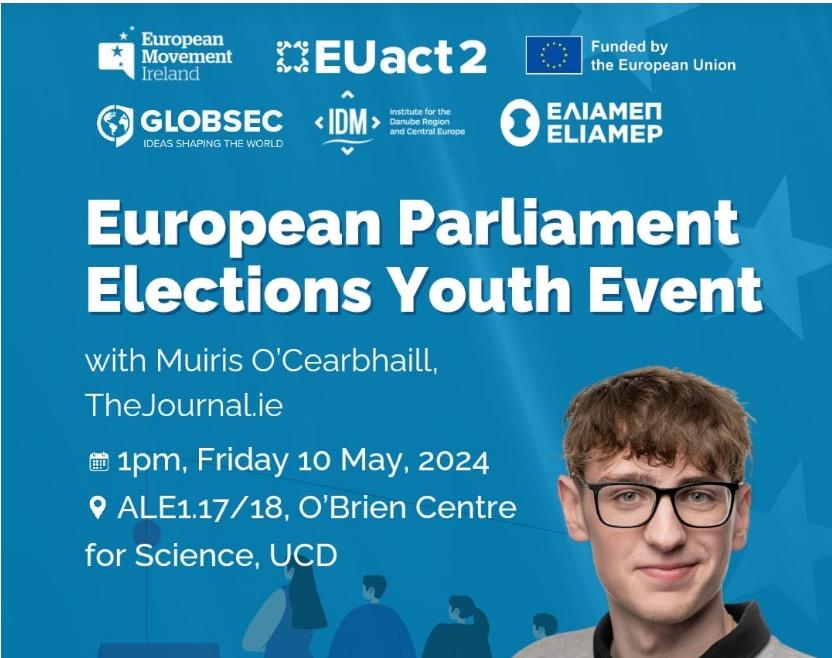Event Summary: European Parliament Elections Youth Event

On May 10 2024, European Movement Ireland hosted a large in-person event entitled ‘European Parliament Elections Youth Event’ as part of the EUact2 project. This event took place on the campus of University College Dublin. With a target audience 16-25 year olds, the participants largely consisted of university students, members of young political groups, and secondary school students. The event gathered 79 young people from 9 EU countries and 3 non-EU countries. Women predominated with 48, men were 30, and 1 non-binary.
The format was highly interactive starting with short initial knowledge-enhancing presentations with EMI’s Guide to EU Institutions and EU Elections 2024 by Carla Donohoe, Project Officer European Movement Ireland and Covering the EU Elections and the EU Legislative Process by Muiris O’ Cearbhaill, Journalist, the Journal.ie.
Roundtable discussions, with group debates centered around five questions: What word do you think of when you hear about the European Union/European Parliament? Do you think it’s difficult to access information about the European Parliament or the EU more generally? What is something you feel more people should know about the EU? What could MEP’s do to improve engagement with constituents, particularly young people? What is the most important issue to you for an MEP to address if elected?
Main Takeaways:
· Youth seeing the EU as both big and confusing. ‘Big’ in the sense of impacting laws, its budget and competencies. Confusing in understanding all layers of the different European institutions, including the European Parliament).
· Having access to information on EU developments in non-complicated/legal language is highly desirable and seen as one channel to increase engagement in and understanding of the processes.
· While social media can enhance access to EU information, some concerns are already realized that lack of sourcing and ease of promoting non-factual information can at the end hinder proper knowledge-building on EU processes and institutions.
· EU knowledge should go beyond knowledge of the institutions and legislative process, and also focus on the role of the EU as an international actor.
· There is a clear disconnect between the MEPs in Brussels and their level of visibility at the local level. According to young people, MEPs do not engage them, even on social media, where they are often avid users. And, when in traditional media the presence is felt, the topics discussed exclude important issues for the youth.
· Young people care about more work to be done on combatting gender-based violence, education should be a higher priority, protecting access to accessible and accurate information, as well as migration policy.